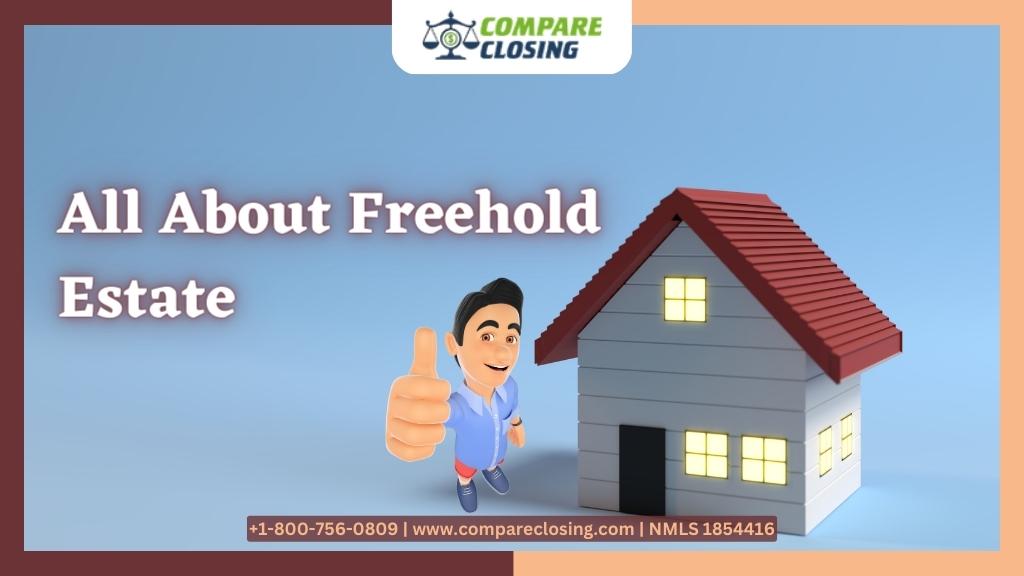Table of Contents
- What Are Netting Escrows & How Does It Work?: The Best Guide - January 2, 2024
- The Secret About Prescriptive Easement: Top Guide 1 Must Know - December 4, 2023
- About Home Equity Loans In Texas And How Can One Obtain It - November 27, 2023
About Freehold Estate
Every buyer has their reasons to purchase a property. Some buyers may buy to move in as a primary residence, while some might buy with the intent to put it on rent and earn some passive income.
Based on the type of property you purchase, the ownership and possession rights may vary. In this post, we will understand what is a freehold estate in detail.
What Is Freehold Estate?
Freehold estate, in short, is a type of ownership where you have exclusive rights to the property for an undefined or indefinite length of time.
In other words, it is an “immovable” asset in that you have a certain amount of interest.
Since freehold estates are forever (meaning the estate can last for your lifetime or after death), they are also referred to as the estate of inheritance.
This means that the ownership of the property will be transferred to the original holder’s living descendants based on a will or laws.
In some cases, a freehold estate can be called an “estate with no inheritance” as the ownership rights may only exist as long as the original holder is alive.
What Are the Types of Freehold Estates?
When you are looking to purchase a house, know that three types of free-hold estates are available including:
- Fee simple absolute
- Fee simple defeasible
- Life estates
Fee simple absolute: Fee simple and fee simple absolute is often used interchangeably and is one of the most common types of freehold estate.
In this type, the owner has absolute ownership rights of the property without limitations.
There is no limit to how long you can own the property, and can also pass it on to your descendants.
You retain unlimited rights as long as you fulfill your obligations as a landlord, such as property taxes. As long as you do it, you can use the land as you want.
Fee simple determinable: This type of free-hold estate is also known as fee simple defeasible.
This type of free-hold estate may include additional conditions compared to fee simple absolute. Below are the examples:
- Conditional use of the property.
- Limitations to change some portion of the property and keep it in a specific way.
- You must transfer the property to someone else at some point.
These conditions may vary based on the contract that is signed. So, if you are considering buying this type of free-hold estate, make sure you read the terms and conditions of the contract carefully.
Life estate: Ownership in life estate lasts for the duration of the owner’s life. A life estate is not the same as a common law ownership contract as it is a deed or leasehold estate.
The original owner, known as the life tenant, may live his life in the house.
While the life tenant is living at the property, they also share joint ownership with the heir.
So the descendants have responsibilities, like paying a mortgage, insurance, and property taxes. But you must have approval from the original holder for any other changes.
The owner has the right to lease property and can only create freeholds or servitudes during his lifetime.
What is a Nonfreehold Estate?
Nonfreehold estate is a type of real estate that you have a limited right to use or occupy, but do not own.
You are renting a property without property ownership. These types of assets are often referred to as estates of no inheritance, less than the free-hold estate, or leasehold estates.
Since this type of ownership involves tenants, it is sometimes also referred to as tenancies.
There are four types of Nonfreehold estates, tenancy for years, tenancy from period to period, tenancy at will, and tenancy at sufferance.
Conclusion
Finally, freehold estate is one of the most attractive types of real estate ownership for homeowners and investors looking to grow their investment portfolios. Every owner is looking for a home that meets their needs.
If you are looking to buy a new home, whether primary or investment, make sure that you read the contract and see what kind of real estate ownership is mentioned in the contract.
If you need more information on freehold estate, get in touch with your trusted real estate agent.
Amanda Byford
Amanda Byford has bought and sold many houses in the past fifteen years and is actively managing an income property portfolio consisting of multi-family properties. During the buying and selling of these properties, she has gone through several different mortgage loan transactions. This experience and knowledge have helped her develop an avenue to guide consumers to their best available option by comparing lenders through the Compare Closing business.





